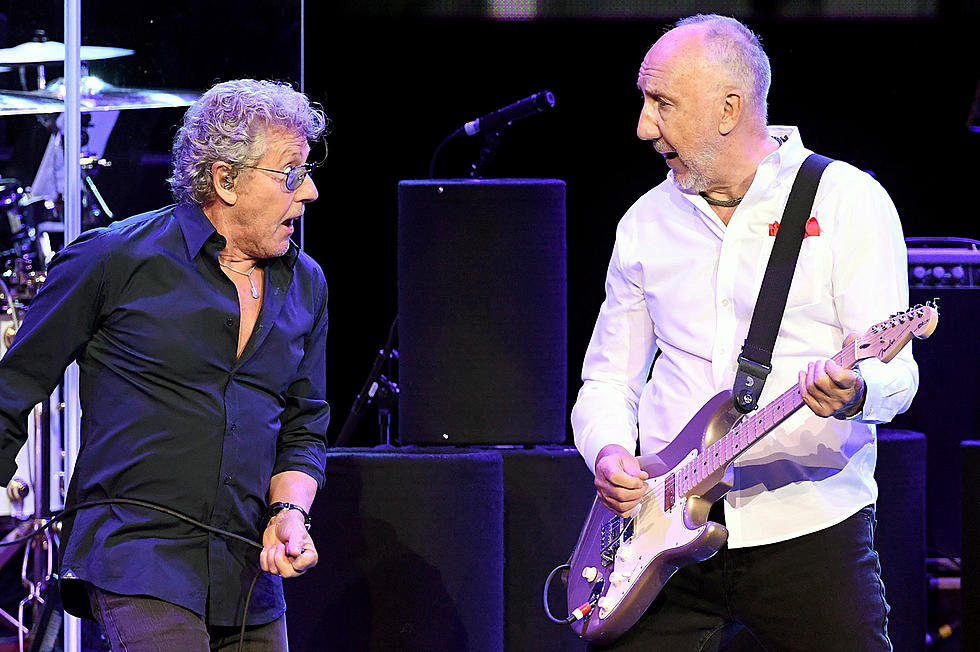
How ‘WKRP in Cincinnati’ Broke the Rules to Cover the Who’s Concert Tragedy
The impetus for a still-remarkable moment of television on WKRP in Cincinnati grew from a concert tragedy on Dec. 3, 1979, just before the Who took the stage at Riverfront Coliseum.
The Cincinnati venue had become known for its lax security and safety standards, evidenced by notorious occurrences at previous concerts by Yes and Led Zeppelin, among others. Nonetheless, this concert utilized the ticketing process of unreserved so-called festival seating, meant more for open-air and open-field venues. The tickets all cost the same, and fans' actual seating positions, whether near the stage or otherwise, depended on how fast one could get to the front.
Fans who waited outside mistook the Who's later-than-expected soundcheck for the actual concert and rushed the venue, finding only a few doors actually unlocked. Too many people jamming into too small a space meant certain trouble. Eleven people were trampled to death in the ensuing melee.
Neither the details of this horrible incident – nor the history of sitcoms itself – indicated that it would make good TV comedy fodder.
After all, network situation comedies aren't typically known for tackling controversial current events. There are "very special episodes" that will hit upon a broad topic, but when it comes to focusing on a difficult moment ripped from the headlines, the format understandably often can't handle the balance of comedy and the shock of the real.
But WKRP broke from that pattern a few months after the Riverfront tragedy, when an episode titled "In Concert" – recently reissued as part of a box set featuring the complete series – addressed the deadly stampede head on.
Set in a rock-oriented radio station full of misfit characters, WKRP in Cincinnati regularly featured the hit music of the day as a part of its scripts. That, coupled with the show's (fictional) station being set in the same city as this particular real-life tragedy, gave the sitcom an opening to deal with something more thought provoking than the usual antics of disc jockeys Dr. Johnny Fever (Howard Hesseman) and Venus Flytrap (Tim Reid) and newscaster Les Nessman (Richard Sanders).
Still, producer Hugh Wilson was initially against the idea, scripted by stalwart writer Steven Kampmann. The vice president of CBS' Cincinnati affiliate WCPO, Robert Gordon, believed the effort to be in poor taste, capitalizing on a horrific event, and he threatened to preempt the airing with alternate programming. Only after a preview of the episode – which focused not on sensationalizing the Who concert but in exposing the fact that few U.S. cities had yet to address the issue of unreserved ticketing – did Gordon change his mind.
"In Concert" aired on Feb. 11, 1980, as the 19th episode in the the second season of WKRP. By then, the Cincinnati municipal council had banned festival seating, heeding calls for such a ban that had been made as early as 1976.
The fallout for the Who had become clear by then, as well. The group was already under tremendous pressure, having just lost longtime drummer Keith Moon to an overdose of Heminevrin, a drug for alcohol withdrawal symptoms. Roger Daltrey, Pete Townshend and John Entwistle were attempting to carry on with the less-dynamic Kenney Jones in the drummer's chair – a controversial experiment, then and now.
Musical concerns, however, were put aside after the Cincinnati show – which had gone on, as planned, with the band kept in the dark about the deaths until after the show. The fear was that if the concert was canceled, the audience reaction might have made things even worse. Townshend remained visibly shaken through the Who's subsequent shows. "There's no words to say what I feel," Daltrey told Cincinnati rock station WEBN. "I'm a parent, as well. I've got a boy of 15, and two little girls. All I can say is: I'm sorry for what's happened."
The next night's show in Buffalo was dedicated to those who died. Safety measures that once might have been considered unnecessary were now implemented.
The stampede was further memorialized in the film adaptation of Pink Floyd's The Wall, when concertgoers are crushed trying to enter a Nazi-esque youth rally that features the songs "In the Flesh," "Run Like Hell" and "Waiting for the Worms."
And yet, festival seating – despite an ongoing ban in Cincinnati – remains a legal, if far less common, practice across the country. Capitalism, not lawmakers or even television programming, ultimately made concert-going safer, in a roundabout way. With venues committed to assigned-seating more than ever, the business-culture of high pricing for better floor positions has run rampant. Stage-side seating for anything less than $100 per seat is rare, if not entirely unthinkable now.
While the advent of cable and subscription networks has helped the situation comedy format expand and mature, on network television it still primarily exists in a fantasy land – filled with huge apartments the characters couldn't possibly afford based on the jobs they're supposed to have, or in a mythical New York City somehow filled with freely available street parking. Some would argue that is the way it should be for such escapist fare.
Critics of the medium, and specifically of this episode of WKRP, tend to echo the arguments that nearly shut down this memorable television moment in its infancy. Such dark inspiration, no matter how pertinent, can kill the spirit of comedy. The story risks becoming wooden, preachy and – probably the worst thing that could be said of any light entertainment – not funny.
Still, if the "In Concert" episode stands for nothing else, it at least has the honor of saying this: 35 years ago when things got real, right in the backyard of its fictional setting, WKRP in Cincinnati did not flinch.
Pete Townshend Albums Ranked
Why Don't More People Love This Album by the Who?
More From Ultimate Classic Rock









